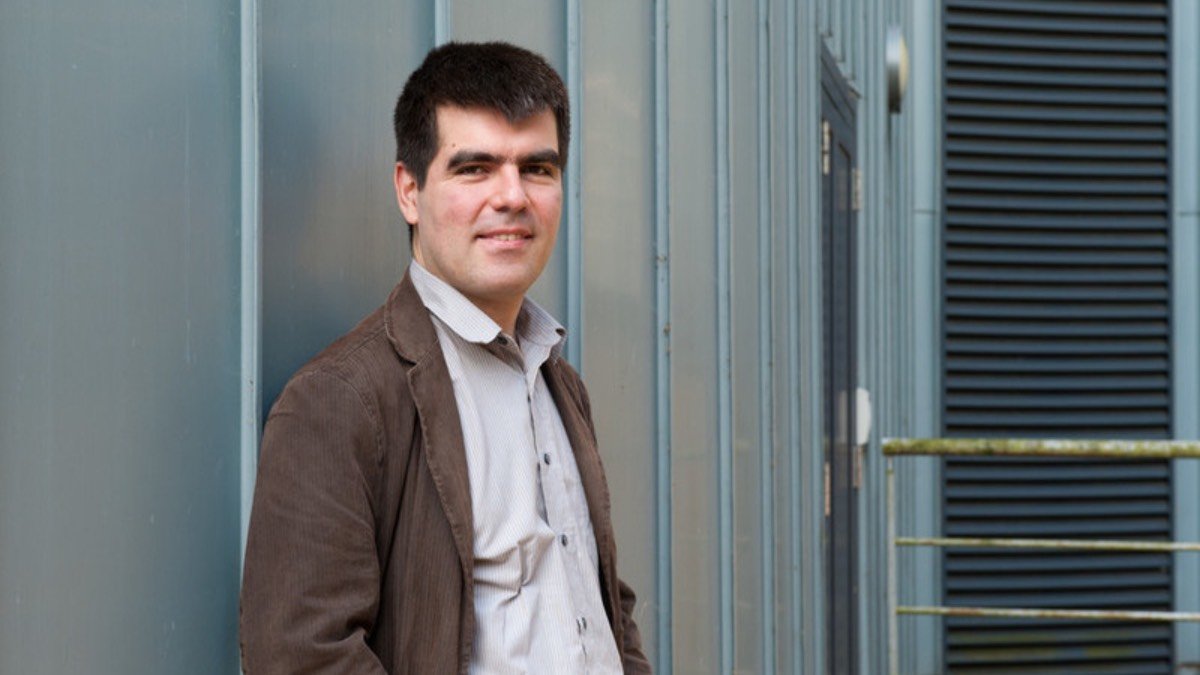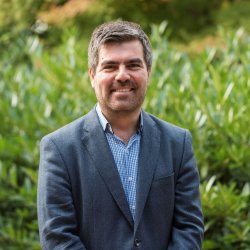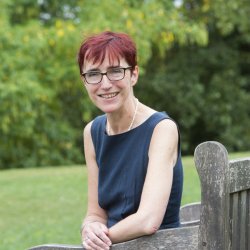Why you should study civil and environmental engineering at Surrey
Dr Boulent Imam, the MSc Programmes Lead for Civil and Environmental Engineering, tells us why postgraduate students should choose Surrey.

"You’ll learn from academics and industry professionals who are leading their research fields," promises Dr Boulent Imam.
Why should I choose Surrey?
“Surrey has a long-standing track record of offering a range of civil and environmental engineering MSc programmes and is home to multidisciplinary research of global significance serving the economy and society.
“Our MSc programmes span infrastructure systems engineering and asset management for sustainable development to combat hazards and climate change, water and wastewater treatment, geotechnical engineering, and environmental and public health. We have excellent links with industry. Infrastructure organisations such as Network Rail, Sir Robert McAlpine, Innogy Renewables, VJTech, Highways England and Thames Water partner with us for research collaborations as well as contributing to our teaching. We also work with the World Health Organization (WHO) through our Centre for Environmental Health and Engineering, which is a WHO Collaborating Centre for the protection of water quality and health.
“At Surrey, you’ll learn from academics and industry professionals who are leading the way in the above research fields and you can potentially get involved in exciting real-world projects.
"We have an international outlook with strong collaborations in Europe and across the globe."
What’s it like to study here?
“Undertaking postgraduate study here puts you at the heart of a vibrant and exciting research community. You can specialise in a fascinating field of civil engineering, which feeds into a specific area of industry on our Advanced Geotechnical Engineering MSc, Infrastructure Engineering and Management MSc, Structural Engineering MSc and Water and Environmental Engineering MSc. There's also our unique and long-established Bridge Engineering MSc, which is the only course of its type in Europe.
“Alternatively, you can study on our Civil Engineering MSc, enabling you to tailor the course to your interests and career aspirations. Our multidisciplinary approach means students on all our MSc programmes have the option of choosing modules from a wide range of specialisms which examine and explore current industry needs and thinking.
“You’ll also be given a personal tutor, who'll support you during your time here. Finally, you'll be learning in an environment that has been awarded a Gold Standard in the Teaching Excellence Framework ratings.”
Can I study part-time via distance learning at Surrey?

Part-time and distance learning options are available for our masters courses.
“You can study for one of our masters courses in a flexible way that suits your career stage and current commitments. You may opt to study full-time for one year, part-time for two to five years, or choose our Distance Learning option, which takes two to five years to complete.
“Distance Learning enables you to study online any of our MSc programmes from anywhere in the world by accessing module materials and lecture recordings, and participating in online discussions, all via our virtual online environment, SurreyLearn.
“On all our MSc programmes, we offer February start dates as well."
What are the facilities like?
“In 2019, the University invested £450,000 in new and upgraded facilities for our Geotechnics and Geology Laboratory. We also have:
- A Materials and Structures Laboratory for the manufacture and assessment of structural elements
- The Surrey Advanced Geotechnical Engineering (PDF) (SAGE) Lab carries out advanced laboratory testing of soils and scaled model tests of geotechnical problems
- The Centre for Environmental Health and Engineering addresses water quality and associated health issues around the globe, and is a World Health Organization Collaborating Centre for the protection of water quality and health
- Wind tunnel facilities for pollution dispersion modelling and measurement
- The Air Quality Lab, a world-class facility for monitoring air quality."
What are the key areas of research?

The Geomechanics Research Group studies the behaviour of off-shore wind turbines.
“We have four research centres:
- Centre for Infrastructure Systems Engineering, which looks into the performance assessment and management of structural and infrastructure systems under multiple hazards to build resilience to climate change and enable sustainable development of the built and social ecosystem
- Geomechanics Research Group, which investigates geotechnical problems such as soil-structure interaction and the behaviour of off-shore wind turbines
- Global Centre for Clean Air Research, which develops engineering-driven solutions for reducing the impact of air pollutants on public health and the built infrastructure
- Centre for Environmental Health and Engineering, which focuses on water resource surveillance and resource recovery.
We have an extensive track record of successful UK, European and industrially funded research projects.”
What is your record on employability?
“Studying for a masters in civil and environmental engineering at Surrey opens up a huge range of career opportunities, not only with major consultancies and contractors but across other sectors such as management and business consultancy. We have an outstanding – and long-standing – record of graduate employability.
“All our masters courses are fully accredited by the Institution of Civil Engineers, Institution of Structural Engineers, Institute of Highway Engineers, Chartered Institution of Highways and Transportation and European Accreditation of Engineering Programmes. Recent MSc graduates have been employed by Atkins, WSP, AECOM, Amey, Mott MacDonald, Laing O'Rourke, ARUP, Arcadis, Fluor, Capita Real Estate and Infrastructure, and Peter Brett Associates.
“The University of Surrey also boasts an award-winning Employability and Careers team, which offers careers information, advice and guidance throughout your time as a student, as well as up to three years after you graduate.”
Surrey was named ‘University of the Year for Graduate Employment’ in The Times and Sunday Times Good University Guide 2022. And 95% of postgraduate taught students are in work and/or full-time study after graduating according to the Graduate Outcomes survey 2022.
What’s life like as a student at Surrey?
“Life as a postgraduate student is not just all about study. Away from the lecture theatres and science labs, there’s a thriving campus of over 16,000 students with around 180 different clubs and societies, ranging from Mixed Martial Arts to the Women in Engineering Society and from the Surrey Video Gaming Society to the Sociological Society.
“Nearby is Surrey Sports Park, a £36-million facility, which offers training for both the elite and the casual athlete. Leafy Guildford, meanwhile, is a bustling market town with a wide range of bars and restaurants surrounded by countryside. It’s also a 35-minute train journey from London, one of the most exciting cities in the world.”
Find out more about our postgraduate courses in civil and environmental engineering.






